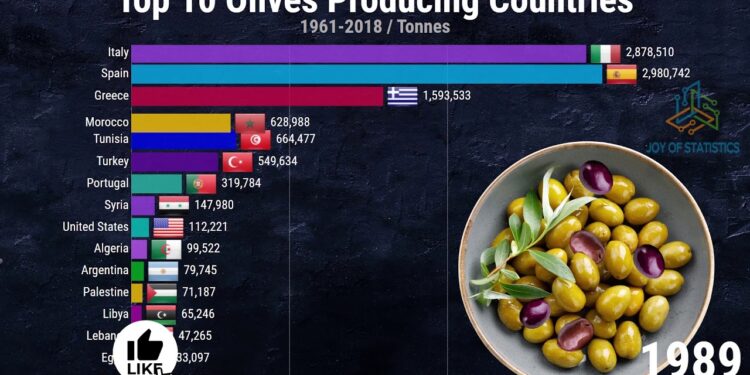Here I am just comparing olive oil to mustard oil.
Nutritional value ?
- MUFA, check. PUFA, check. In fact, you’ll be glad to know that these oils have almost similar nutrient levels which help keep your cholesterol in check.
- “Both oils are rich in antioxidants and anti-inflammatory properties that help in keeping many health issues at bay,
- Mustard has an upper hand when it comes to nutrition. This is because it has the ideal ratio of 1:2 of omega-6 and omega-3 fatty acids, as recommended by the WHO.
- Olive oil on the other has a ratio of 12:1 according to Shaikh, which is not good for your heart health.
Unsaturated Fats
- Our body needs unsaturated fats as they improve our blood cholesterol levels, ease inflammation, stabilize heart rhythms and play a number of other beneficial roles. Mustard oil beats olive oil in the percentage of less saturated fats. Mustard oil generally has 11% saturated fats, 59% monounsaturated fats, and 21% polyunsaturated fats. Olive oil has 13% saturated fats, 72% monosaturated fats & 10% polyunsaturated fats. Monounsaturated fat and polyunsaturated fat including omega-3 and omega-6 fatty acids,are ‘healthy’ fats. They can help to maintain healthy cholesterol levels. Cholesterol is a fatty substance in your blood. Saturated fat and trans fat are ‘unhealthy’ fats.
- Omega Fatty acids (Omega3 and Omega6) : Mustard oil is rich in omega fatty acids. These acids help reduce the risk of heart diseases, reduce cholesterol and prevent blocking of the arteries. Mustard oil has 21% and olive oil has only 9% fatty acids.
Anti-inflammatory properties
- Inflammation is a natural response of our body to heal and protect itself from harm. However chronic inflammation is harmful. Food products rich in anti-inflammatory properties help to prevent and heal inflammatory damage. While olive oil has inflammatory properties, but much less than mustard oil.
Minerals content
- Minerals help our body to keep our bones muscles, heart, and brain in a healthy condition.Mustard oil contains calcium in sufficient quantities whereas, olive oil has essential vitamins that are difficult to acquire from common food sources. Olive oil contains 1% potassium, 1% calcium & 0.5% iron.
Nutritional Chart comparing Mustard oil and Olive oil
| Nutrient | Value per 100g | |
| Mustard oil | Olive Oil | |
| Energy | 884 Kcal | 884Kcal |
| Fats | 100g | 100g |
| Saturated Fats | 11.58g | 14g |
| Unsaturated Fats | 59.182 | 73g |
| Poly Unsaturated Fats | 21.21g | 11g |
| Sodium | 0g | 2mg |
| Potassium | 0g | 1mg |
| Iron | 0g | 0.5mg |
| Vitamin E | 34 mg | 14mg |
| Vitamin K | 5.4mcg | 62mcg |
Smoking point

A smoking point represents the absolute upper limit of the usable temperature range of an oil. In other words, the smoke point of an oil is the maximum temperature, and you should avoid heating it past that point whenever possible.
- If your cooking oil smokes, it indicates your oil is getting too hot.
- Overheating cooking oils creates undesirable flavors and harmful byproducts.
- If you’re cooking at 350-400°F or higher, choose an oil with a high smoke point.
- Besides smoke points, consider thermal stability and fatty acid content when choosing oils.
- Cooking oils high in polyunsaturated fats have the worst thermal stability as well as other downsides.
In this picture, you can clearly see that the smoke point of olive oil is one of the lowest. Pure mustard oil has a high smoke point of around 480°F (250°C), putting it on par with other fats like butter.
Shelf life
Olive oil and mustard oil both get rancid when exposed to oxygen continuously for some time. Mustard oil has a shelf life of 9 to 12 months while the shelf life of olive oil can last for 20 to 36 months.
All game
90% of olive oil comes from Europe and North Africa, and this is a marketing ploy by European countries to make their product look the best.
Too costly
There is a huge price disparity in both oils. Mustard oil is available for Rs.81 to 113 per liter and olive oil costs around Rs 600 to 1000 per liter.
Result
Due to their good marketing skills, they can eventually sell their goods at 5 times the higher price. You buy olive oil at an expensive price
“When it comes to olive oil many people don’t really know how to use it and at times use it as a replacement for regular refined oil which is very, very harmful. So, keeping in mind the Indian scenario i.e. the way we cook and the type of food we eat, mustard oil is the right and a much healthier choice to make. It is inexpensive and is readily available and we all know how to use it,” she concludes.
So ladies, the next time you hit the supermarket, you might want to move towards mustard oil leaving that big jar of olive oil behind.


